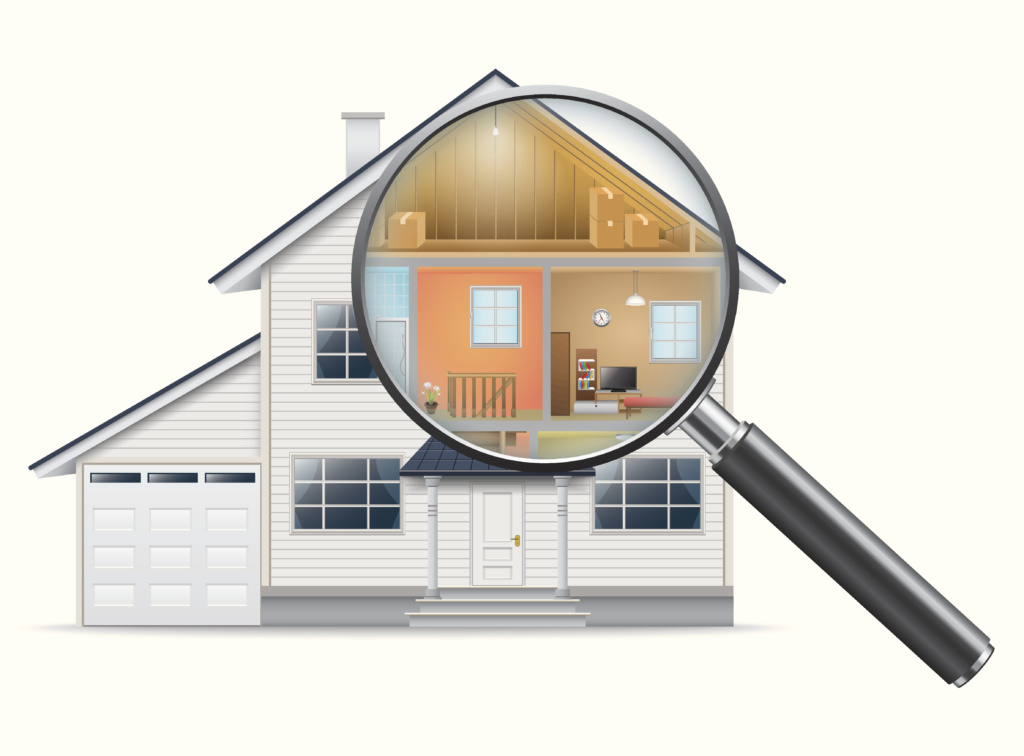The Importance of Home Inspections
Article by | Caitlin Curbello-Rodriguez
Home inspections are important because a home is often one of the biggest purchases someone will make in their lifetime. Home or real estate inspections are a snapshot evaluation of the property condition at the time of the inspection. Inspections give both the buyer and seller an understanding of potential building code violations or deficiencies before a transaction is completed. It’s important to note, no structure passes or fails an inspection; an inspection is only an objective report on the condition of the structure. This helps both the buyer and seller make educated decisions concerning the purchase, repair, and other important details of the property.
For a home inspector to conduct an inspection in Texas, they require a license from the Texas Real Estate Commission (TREC). Surprisingly, there are many states that don’t require licensure for home inspectors, like Colorado and California. “To receive this license, inspectors must complete around 450 hours of training,” said Steve Jolly of Texas Professional Inspections. “Plus, inspectors must keep up with continuing education after their initial licensure.” Beyond that, home inspectors in Texas are required to follow the TRECs standards of practice, which is an overall guideline of what a required inspection covers. “These are just the minimum requirements for a standard inspection,” said Andy Merritt, owner and home inspector at BCS Inspectors. “The inspector can definitely go beyond those lengths if they feel it’s appropriate.” The best way to choose a home inspector is to thoroughly research the options. Look at years of experience, customer reviews, and Better Business Bureau ratings, according to Merritt and Jolly.
Additionally, home inspectors must be vigilant of different city’s municipal building and electrical codes, while also adhering to the TRECs standards of practice. For instance, Bryan and College Station may differ slightly on certain aspects of building and electrical codes, and home inspectors must be aware of these differences.
What to expect
Home inspectors typically represent the buyer of a home, “but we are doing more pre-listing inspections for sellers now,” said Merritt. “This way, sellers aren’t surprised by the buyers home inspection findings, and can have these items addressed before listing the home. It makes the process much smoother.”
Merritt compares inspecting a home to washing a car. “You start at the roof of the car and work your way down to the wheels,” Merritt said. “It’s a full structural, mechanical inspection covering your roof, attic, walls, doors, windows, electrical systems, plumbing systems (including water heaters), and all of your built-in appliances.” Many times, home inspectors offer a la carte inspections of optional systems such as pools, septic systems, and wells.
A home inspection begins when the inspector enters the neighborhood. “We can tell if there has been a damaging hail event if we see roofs that are shiny,” Merritt said. “That usually means the aggregate has been knocked off from the hail, and we can see that driving towards the house.” Inspectors then sit in front of the home in their vehicle to check if the house appears level. As they approach the house on foot, they take note of other structural components such as cracked brick, and if the front door is square.
Once inside, inspectors generally start in the kitchen. “We evaluate all kitchen components like appliances, electrical systems, and plumbing,” Merritt said. “We make sure the oven is at operating temperature, and that the dishwasher is functioning properly.” After examining the interior, inspectors head outside to survey the exterior of the home.
Should the buyer and/or seller be present during an inspection? “From an inspector’s standpoint, we always prefer our client to be present for an inspection,” Merritt said. “This way we can clearly address any questions or concerns that might come up. Having said that, we do write very detailed reports and we’re always available by phone or email if something doesn’t make sense.” However, both Merritt and Jolly suggest that only the buyer be present for the inspection, unless it is a pre-listing inspection done for the seller. That way, any disputes between buyer and seller can be avoided, and the home inspector can properly perform their inspection.
Merritt and Jolly both emphasize that homes don’t pass or fail inspections. “As a property condition report, home inspections only identify the current conditions of the property to educate the client,” Merritt said. For instance, if a foundation has a large crack and there is obvious need for repair – the house didn’t fail or pass the inspection. The inspector merely identified a major deficiency that lets the client know they must contact the proper authorities for further evaluation and cost of repair.
Speaking of cost, home inspections normally start at $300. “The cost really depends on the age of the home and square footage,” Jolly said. “Additions such as pools and irrigation systems will add to the costs.”
How to prepare
- Do your research and be a part of the process. “Don’t let a realtor or anyone else choose which home inspector you use,” Merritt said. “You need to perform your own due diligence and make the choice you’re most comfortable with.”
- If you’re selling, have a pre-listing inspection done. “In many cases, a home inspection will keep the seller out of trouble, too,” Merritt said. “Sometimes people forget to list things on seller disclosure sheets that really need to be there. Home inspections can catch these items during a pre-listing inspection, and keep the seller out of legal trouble. Otherwise, any problems that appear and aren’t listed on the disclosure sheet could become a negotiable item for the buyer.”
- Clean your home. “If there are any water leaks, or anything that you know of that is faulty – get it fixed because it’s going to come up on the inspection,” Merritt said. “Do basic housekeeping and pick up clothing. Get the house in very good appearance. The less time a home inspector is in your house the better it’s going to be for the seller […] just run through the finish line and keep the presentation up. Then it will make it a much smoother process.”
Why it’s important
Overall, a home inspection is meant to be an objective report on the condition of a home and an educational tool for the buyer and seller. Texas home inspectors are held to a much higher standard through TREC than most other states in the country to ensure the client’s interests are always top priority. A home inspection protects a homebuyer and seller’s investment, and allows them to make the most educated decisions about such a significant transaction.
“People should embrace home inspections as part of the process,” Merritt said. “People need to realize it’s in their best interests to have an inspection done. Even on brand new houses because more often than not, houses are far from perfect.”

